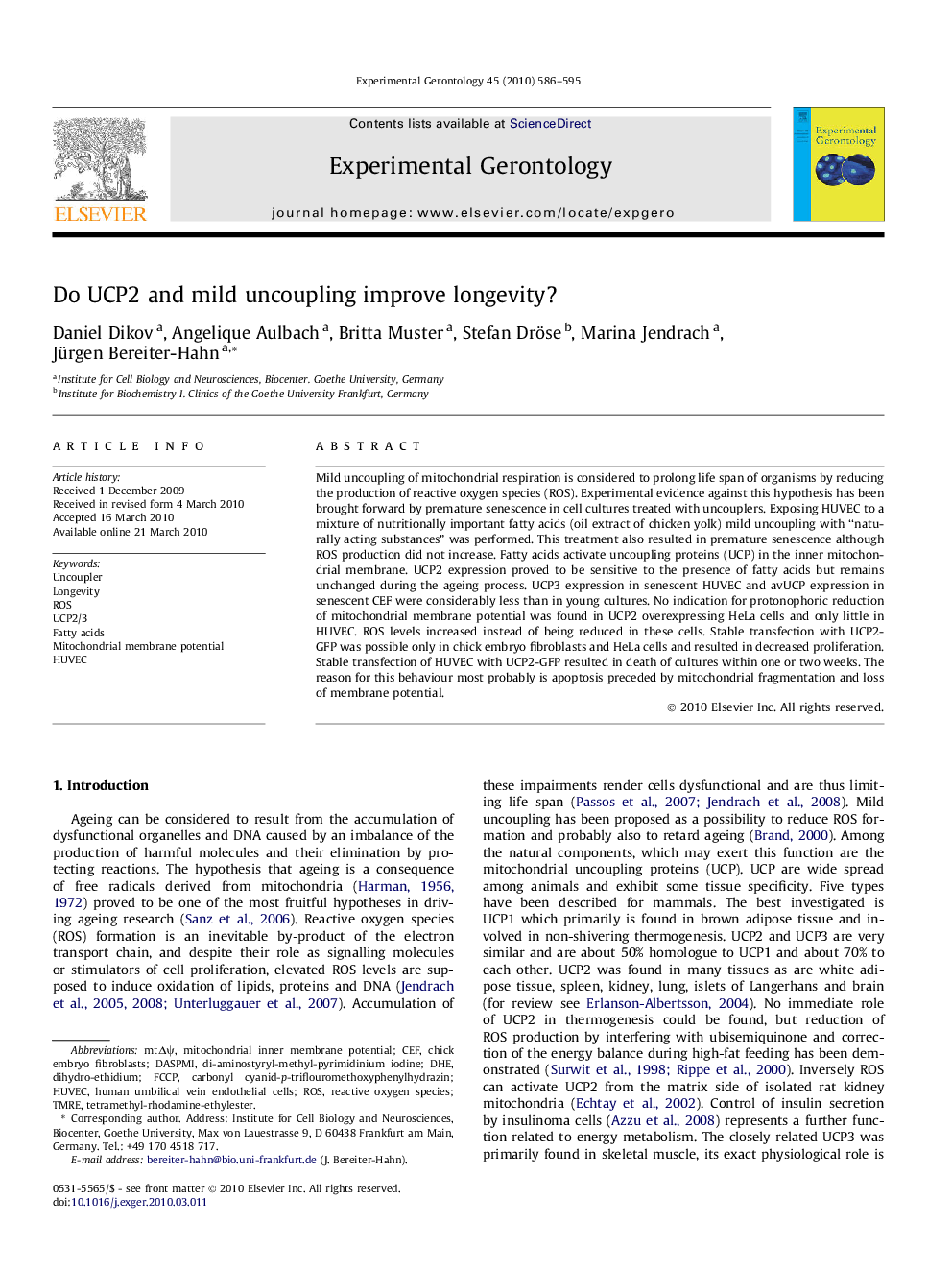| کد مقاله | کد نشریه | سال انتشار | مقاله انگلیسی | نسخه تمام متن |
|---|---|---|---|---|
| 8264836 | 1534894 | 2010 | 10 صفحه PDF | دانلود رایگان |
عنوان انگلیسی مقاله ISI
Do UCP2 and mild uncoupling improve longevity?
دانلود مقاله + سفارش ترجمه
دانلود مقاله ISI انگلیسی
رایگان برای ایرانیان
کلمات کلیدی
HUVECFCCPCEFTMREDASPMILongevity - دیرزیستی یا طول عمرROS - ROSFatty acids - اسیدهای چربUncoupler - انکودرHuman umbilical vein endothelial cells - سلول های اندوتلیالی ورید ناف انسانchick embryo fibroblasts - فیبروبلاست های جنین جوجهDHE - وMitochondrial inner membrane potential - پتانسیل غشای داخلی میتوکندریایMitochondrial membrane potential - پتانسیل غشای میتوکندریReactive oxygen species - گونههای فعال اکسیژن
موضوعات مرتبط
علوم زیستی و بیوفناوری
بیوشیمی، ژنتیک و زیست شناسی مولکولی
سالمندی
پیش نمایش صفحه اول مقاله

چکیده انگلیسی
Mild uncoupling of mitochondrial respiration is considered to prolong life span of organisms by reducing the production of reactive oxygen species (ROS). Experimental evidence against this hypothesis has been brought forward by premature senescence in cell cultures treated with uncouplers. Exposing HUVEC to a mixture of nutritionally important fatty acids (oil extract of chicken yolk) mild uncoupling with “naturally acting substances” was performed. This treatment also resulted in premature senescence although ROS production did not increase. Fatty acids activate uncoupling proteins (UCP) in the inner mitochondrial membrane. UCP2 expression proved to be sensitive to the presence of fatty acids but remains unchanged during the ageing process. UCP3 expression in senescent HUVEC and avUCP expression in senescent CEF were considerably less than in young cultures. No indication for protonophoric reduction of mitochondrial membrane potential was found in UCP2 overexpressing HeLa cells and only little in HUVEC. ROS levels increased instead of being reduced in these cells. Stable transfection with UCP2-GFP was possible only in chick embryo fibroblasts and HeLa cells and resulted in decreased proliferation. Stable transfection of HUVEC with UCP2-GFP resulted in death of cultures within one or two weeks. The reason for this behaviour most probably is apoptosis preceded by mitochondrial fragmentation and loss of membrane potential.
ناشر
Database: Elsevier - ScienceDirect (ساینس دایرکت)
Journal: Experimental Gerontology - Volume 45, Issues 7â8, August 2010, Pages 586-595
Journal: Experimental Gerontology - Volume 45, Issues 7â8, August 2010, Pages 586-595
نویسندگان
Daniel Dikov, Angelique Aulbach, Britta Muster, Stefan Dröse, Marina Jendrach, Jürgen Bereiter-Hahn,